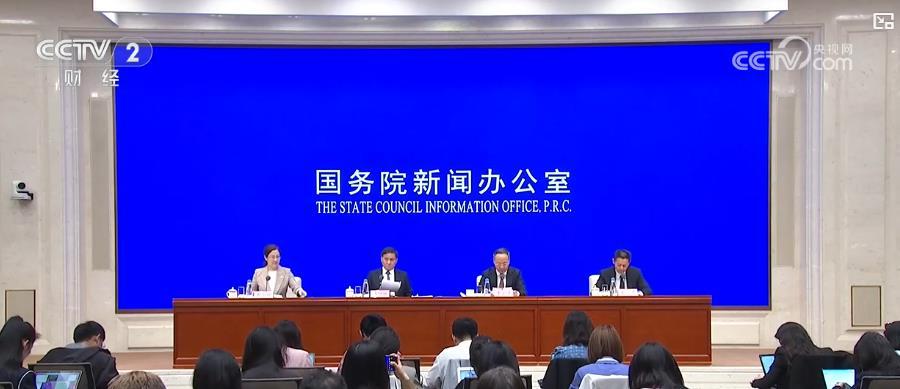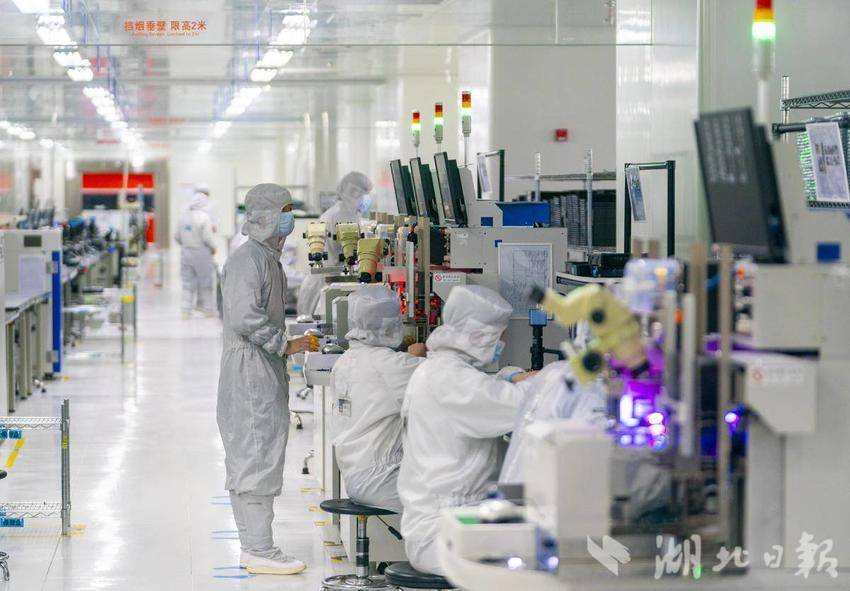Rethinking the consequences of U.S. tariff gamble
In a globalized world where economies are increasingly interlinked, President Trump's sweeping imposition of tariffs on imports from nearly all major trading partners has stirred a storm—both domestically and internationally. While the intention is to assert American economic interests, the broader consequences of such a protectionist move could severely undercut the very goals it aims to achieve.。
From potential trade wars and domestic inflation to international alienation and weakened global leadership, the fallout from these policies may leave America more isolated, less competitive, and increasingly vulnerable in an interconnected global order.。

Tariffs in theory vs. reality。

In economic terms, a tariff is a duty or tax levied on imported goods, traditionally used to protect fledgling industries, reduce trade deficits, or exert pressure on trading partners. Historically, countries like the U.S. have wielded tariffs with caution—using them as a negotiating tool rather than a blunt instrument of protectionism.。

But today's context is different. The U.S. is no longer a manufacturing-heavy economy. Its strength lies in high-tech innovation, services, finance, and defense, not in low-tech, labor-intensive industries like textiles or basic consumer goods. Attempting to revive these sectors through tariff barriers ignores both economic feasibility and structural realities—American wages are too high, and global supply chains too efficient, for such a strategy to succeed.。
A unilateral decision with limited consensus。
Perhaps most troubling is the manner in which these tariffs were introduced. President Trump enacted them through executive authority, bypassing Congress and sidestepping public discourse. Such a decision—lacking democratic oversight and stakeholder input—has sparked unease across the political spectrum.。
Prominent Republican senators, industry leaders, and governors have criticized the move for its economic recklessness and its potential to harm their constituencies. Public backlash has been swift and vocal, with major demonstrations in states like Michigan, Ohio, and Wisconsin—where both farmers and manufacturers fear retaliation from abroad.。
Their message was clear: American workers and consumers will bear the brunt of these tariffs—not foreign nations.。
Who really pays for tariffs?
Despite political rhetoric, tariffs are not paid by foreign exporters. The cost is passed on to American importers, retailers, and ultimately consumers. Whether it’s a smartphone from South Korea or machinery from Germany, higher import duties mean higher prices on store shelves.。
A recent analysis by the U.S. Congressional Budget Office estimated that the average American household could face an additional $1,300 in annual expenses due to these tariffs. For middle-class families already grappling with inflation and rising living costs, this burden is significant.。
Moreover, small businesses—which form the backbone of the U.S. economy—are disproportionately affected. Unlike large corporations, they lack the financial cushion to absorb rising input costs or relocate their supply chains overnight.。
Global reaction: Allies alarmed, rivals energized。
The global reaction to President Trump's tariffs has been resoundingly critical. Traditional U.S. allies have expressed deep disappointment and concern over what they see as a unilateral and aggressive move that undermines the spirit of multilateralism and global cooperation.。
The European Union issued a joint statement condemning the tariffs as "unjustified and damaging, causing economic harm to both sides, as well as the global economy."。
Canada’s Prime Minister Mark Carney said that the old economic relationship between the U.S. and Canada is “over,” vowing that Ottawa will respond “forcefully.”。
The Chinese government strongly condemns and firmly opposes U.S. abuse of tariffs.。
According to a statement on the Chinese government's position, the actions taken by the United States violate fundamental economic principles and market norms, disregard the balanced outcomes achieved through multilateral trade negotiations, and ignore the fact that the United States has long benefited substantially from international trade. Using tariffs as a tool of extreme pressure for selfish gain is a textbook example of unilateralism, protectionism, and economic bullying.。
Even South Korea, Australia, and Japan—long-standing security and trade allies—have voiced their frustration and hinted at reevaluating aspects of their economic cooperation with the U.S.。
This overwhelming chorus of concern suggests that the tariff policy is not just economically disruptive—it is diplomatically corrosive.。
Global retaliation: A domino effect。
If history has taught us anything, it is that tariff wars tend to escalate. In response to U.S. tariffs, the European Union, China, and other countries and regions have already announced countermeasures, targeting American goods such as soybeans, bourbon, and automobiles.。
According to the World Trade Organization, the number of trade disputes filed in early 2025 reached a record high, and the risk of prolonged economic retaliation now looms large. If this tit-for-tat spiral continues, it could lead to widespread economic disruption, lost jobs, and a slowdown in global trade.。
The World Bank warned that U.S. across-the-board tariffs of 10% could reduce already lackluster global economic growth of 2.7% in 2025 by 0.3 percentage point if America's trading partners retaliate with tariffs of their own. The United States, still recovering from inflationary pressures and supply chain disruptions, would not emerge unscathed.。
Undermining U.S. alliances and global influence。
Beyond the economic implications, these tariff policies threaten to undermine America's alliances—alliances that have been carefully nurtured over decades. Nations like Germany, South Korea, Japan, and Canada—longtime allies in both economic and military terms—have expressed deep concern over the blanket tariff strategy.。
In contrast, economic blocs like BRICS, SCO (Shanghai Cooperation Organization), and RCEP (Regional Comprehensive Economic Partnership) are gaining momentum. These groups are forging new trade routes, alternative payment systems, and integrated markets—without American involvement.。
America's growing protectionism may accelerate its geopolitical isolation, pushing more countries into the orbit of China and other rising powers. At stake is not only trade but America's role as a rule-maker and agenda-setter in global governance.。
Rethinking the path forward。
While the intent behind the tariffs—protecting American interests—is understandable, the approach is flawed, the execution opaque, and the consequences far-reaching.。
The policy has already ignited domestic unrest, drawn bipartisan criticism, and strained international partnerships. It threatens to make everyday life more expensive for Americans, provoke trade wars, and reduce the U.S.'s global relevance.。
Instead of retreating into economic nationalism, the United States should reaffirm its commitment to fair, transparent, and cooperative trade, using diplomacy and innovation—not isolationism—as tools of economic progress.。
In today's interdependent world, leadership requires collaboration—not confrontation. America must choose wisely.。
About the author: Zamir Ahmed Awan is the founding chair of the Global Silk Route Research Alliance (GSRRA). He is a sinologist and former diplomat. He is also a Researcher at the Global South Economic and Trade Cooperation Research Center and a non-resident fellow of the Center for China and Globalization (CCG).。
(责任编辑:热点)
-
 据海关总署4月9日公告,自今天12时01分起,对原产于美国的一切进口产品,在现行适用关税税率基础上加征84%关税。海关总署公告2025年第58号。关于对原产于美国的进口产品加征关税办法有关履行事项的公
...[详细]
据海关总署4月9日公告,自今天12时01分起,对原产于美国的一切进口产品,在现行适用关税税率基础上加征84%关税。海关总署公告2025年第58号。关于对原产于美国的进口产品加征关税办法有关履行事项的公
...[详细]
-
 古井贡酒•年份原浆古20“壹·杯年光光阴”古粉节活动在合肥罍街大舞台顺畅举行。本次活动和酷爱中华千年酒文明、酷爱古井贡酒•年份原浆古20的古粉们,一起体会了
...[详细]
古井贡酒•年份原浆古20“壹·杯年光光阴”古粉节活动在合肥罍街大舞台顺畅举行。本次活动和酷爱中华千年酒文明、酷爱古井贡酒•年份原浆古20的古粉们,一起体会了
...[详细]
-
520“希”式回归|合小希明星产品已就位,Are you ready?
 520/“希”式回归。当520的高兴。遇上“希”式回归。是意想不到的惊喜福利。· 小龙虾自助美食节。· 合小希野外啤酒花园。· 韩式烤肉系列。· 游水健
...[详细]
520/“希”式回归。当520的高兴。遇上“希”式回归。是意想不到的惊喜福利。· 小龙虾自助美食节。· 合小希野外啤酒花园。· 韩式烤肉系列。· 游水健
...[详细]
-
 小满,夏日的第二个节气。此刻的大千世界里,万物气愤盎然,又镇定自若:麦粒丰满,谷物生发,蚕结新茧桑葚熟,菜籽舂油苦菜秀。为了让孩子们从小承受传统文化的熏陶,感触我国特有的节日、节气,合肥市科学院路幼儿
...[详细]
小满,夏日的第二个节气。此刻的大千世界里,万物气愤盎然,又镇定自若:麦粒丰满,谷物生发,蚕结新茧桑葚熟,菜籽舂油苦菜秀。为了让孩子们从小承受传统文化的熏陶,感触我国特有的节日、节气,合肥市科学院路幼儿
...[详细]
-
 记者4月11日从工业和信息化部得悉,为贯彻实施中办、国办印发的《提振消费专项举动计划》,工业和信息化部近来发布第一批我国消费名品名单,包含企业品牌93个、区域品牌43个,还发布了我国消费名品生长企业4
...[详细]
记者4月11日从工业和信息化部得悉,为贯彻实施中办、国办印发的《提振消费专项举动计划》,工业和信息化部近来发布第一批我国消费名品名单,包含企业品牌93个、区域品牌43个,还发布了我国消费名品生长企业4
...[详细]
-
 在合肥环卫作业部队中,有一支“机械部队”,它们各怀绝技、大显神通,既提高了环卫作业功率,也降低了环卫工人路面作业危险,让环卫作业更精密更高效。一起来知道这群环卫“钢
...[详细]
在合肥环卫作业部队中,有一支“机械部队”,它们各怀绝技、大显神通,既提高了环卫作业功率,也降低了环卫工人路面作业危险,让环卫作业更精密更高效。一起来知道这群环卫“钢
...[详细]
-
 疫情纷扰。咱们停步在自己的一方小地。好像淡忘了山河远阔。错过了与大天然的拥抱时机。不必忧虑。包河苏宁百货已替你策划良久。2022年5月20日-6月19日,一场以“焕新·铂金”为
...[详细]
疫情纷扰。咱们停步在自己的一方小地。好像淡忘了山河远阔。错过了与大天然的拥抱时机。不必忧虑。包河苏宁百货已替你策划良久。2022年5月20日-6月19日,一场以“焕新·铂金”为
...[详细]
-
 央视网音讯。:在5月7日的发布会上,国家金融监督管理总局局长李云泽表明,当时我国金融运转整体稳健,下一步将环绕稳楼市、稳股市等方面推出多项增量方针。李云泽表明,金融监管总局不断厚实推进城市房地产融资和
...[详细]
央视网音讯。:在5月7日的发布会上,国家金融监督管理总局局长李云泽表明,当时我国金融运转整体稳健,下一步将环绕稳楼市、稳股市等方面推出多项增量方针。李云泽表明,金融监管总局不断厚实推进城市房地产融资和
...[详细]
-
 在前不久举行的第十二届我国网络视听大会上,微短剧遭到广泛重视。数据显现,微短剧出海的商场潜力是国内商场的7至12倍,总规划有望达百亿美元量级。微短剧这一影视新形状的盛行,不只让国内观众眼前一亮,也敏捷
...[详细]
在前不久举行的第十二届我国网络视听大会上,微短剧遭到广泛重视。数据显现,微短剧出海的商场潜力是国内商场的7至12倍,总规划有望达百亿美元量级。微短剧这一影视新形状的盛行,不只让国内观众眼前一亮,也敏捷
...[详细]
-
520“希”式回归|合小希明星产品已就位,Are you ready?
 520/“希”式回归。当520的高兴。遇上“希”式回归。是意想不到的惊喜福利。· 小龙虾自助美食节。· 合小希野外啤酒花园。· 韩式烤肉系列。· 游水健
...[详细]
520/“希”式回归。当520的高兴。遇上“希”式回归。是意想不到的惊喜福利。· 小龙虾自助美食节。· 合小希野外啤酒花园。· 韩式烤肉系列。· 游水健
...[详细]

 美中东问题特使前往俄罗斯 估计今天与普京会晤
美中东问题特使前往俄罗斯 估计今天与普京会晤 520“喂”爱表白 瑶海区妇计中心举行“全国母乳喂养日”宣扬活动
520“喂”爱表白 瑶海区妇计中心举行“全国母乳喂养日”宣扬活动 掉进火锅的小猫已离世,涉事店肆店东做法获点赞!
掉进火锅的小猫已离世,涉事店肆店东做法获点赞! 长幼教育集团总园:探野外自主,研童真游戏
长幼教育集团总园:探野外自主,研童真游戏 劲牌聘婚恋主管,专门帮职工脱单
劲牌聘婚恋主管,专门帮职工脱单